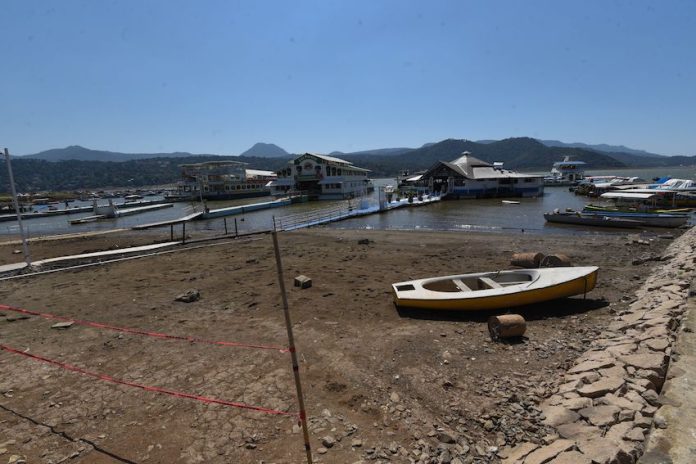More than half of the world’s large lakes and two-thirds of its rivers are drying up, threatening ecosystems, farming and drinking water supplies.
Mexico is no exception: Millions of people in Mexico are at risk of losing water supply as the country’s largest bodies of water continue to dry up at a rapid rate.
Lake Chapala (bordering the states of Jalisco and Michoacán), Lake Cuitzeo (in Michoacán), Lake Zumpango (in México state) and the Colorado River in northern Mexico are all facing extinction according to a report by the news site Sin Embargo.
The Guadalajara metropolitan area depends on Lake Chapala for its potable water, but authorities have been unable to devise a plan to address the crisis.
A study in February indicated that Lake Chapala, Mexico’s largest freshwater lake, is at just 45% of capacity as a result of an extended drought as well as poor water management.
Between 1980 and 2002, more than 500 dams were built on the Lerma River causing lake levels to drop dramatically. By 2003, lake levels were at a staggering 15% of capacity. As a result, the federal government designated Lake Chapala a protected lake and forced farmers to allow more water through their dams to maintain the lake at 60% capacity.

Since then, drought and uneven rainfall has seen lake levels drop, registering below 50% capacity for the past two years.
Last month, we reported that Lake Cuitzeo, the country’s second-largest freshwater lake, has lost 70% of its water over the past 25 years.
Nearby cities and towns depended on the lake for drinking water, agriculture and commercial activities. The economies of the lake-side towns relied heavily on fishing, as both a food supply and by way of fishing charters.
Lake, or Lagoon, Zumpango — a regulating reservoir north of Mexico City — is not only threatened by drought but also by the construction of the Felipe Ángeles International Airport (AIFA) directly next to the protected wetland.
Drought and high temperatures have caused a significant amount of water loss in the area, such that the wetland is no longer a tourist attraction, and many of the 200 bird species that frequented the lake are no longer arriving.
The lack of tourists to the lagoon and a rise in disease traceable to the increase in effluence in the lake (up to 30% of the lake is made up of wastewater) have prompted residents to close down shops and move to look for work elsewhere.
The National Water Commission (Conagua) has been attending to the Colorado River crisis since 2022 when it declared an emergency in four northern states after large sections of the river dried up completely.
More than 40 million people depend on the Colorado River which extends from the United States into Baja California. By treaty, Mexico is to receive 1.5 million acre-feet of water annually, but climate change and drought has seen that figure drop in recent years. Last year, Mexico received 7% less than that agreed to with the U.S.
Farmers and city managers in northern Mexico have been meeting with Conagua to devise conservation plans but they are a work in progress. U.S. authorities, blaming climate change and drought, have also been enforcing new conservation rules while officials in seven U.S. states are also learning how to get by with less water.
With reports from Sin Embargo and El Informador
